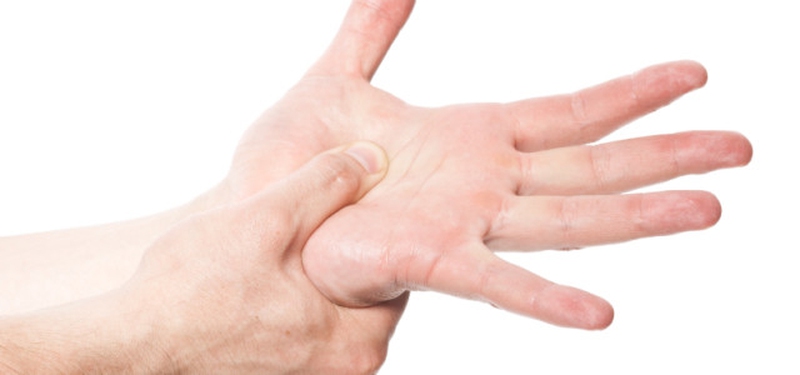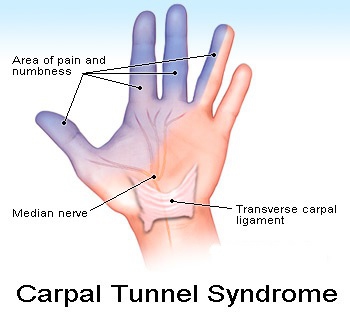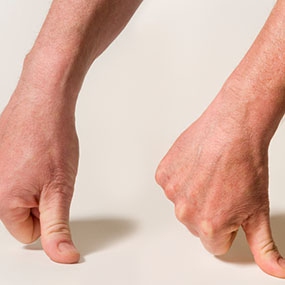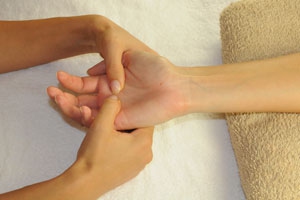There are many reasons why people go to see a neurologist, but one of the most common reasons is numbness in the thumb and other fingers. It is abnormal or decreased sensations brought about by an altered sensory nerve function. When people experience this, they often feel a tingling or complete loss of sensation in the finger. Numb thumb is usually due to the decrease of blood supply in this area. It can also be caused by damage to the nerve associated with thumb. Many people with a numb thumb may often hold their hands in the same position, such as play games or type for a long time.

Why Do I Have a Numb Thumb?
Carpal Tunnel Syndrome
Those who have carpal tunnel syndrome often have times in which their thumbs and other fingers go numb. People often think that they have just slept on their hand wrongly, but it is actually caused by the nerves that are running through the area. When this nerve becomes compressed, it can result in numbness and tingling. Many people can find relief through shaking hands or moving their fingers and thumbs until feeling is restored.
History of Arthritis
If a person has ever had arthritis in the wrists, hands or thumbs, it can cause the median nerve to become compressed, which in turn causes the numbness and tingling of the thumb and other fingers. In many cases, the thumb joint will swell which further puts restrictions on the median nerve. The swelling is the main indicator that arthritis is to be to blame for numbness.
Double Crush
Sometimes numb thumb is caused by a medical condition—double crush. With this, if nerves are compressed in 2 different areas of the neck, arm, wrist or hands, then numb thumb may happen. For example, someone may have a compressed nerve in the neck and another in the wrist, which may form a double crush, resulting in the numbness of the thumb or entire hand.
Other Causes of Numb Thumb and Fingers
Other causes that could result in the numbness of thumbs and other fingers include:
Peripheral neuropathy | Ulnar nerve compression | Paraneoplastic syndromes | Guillian-Barre syndrome |
Lyme disease | Ganglion cyst | Multiple sclerosis | HIV/AIDS |
Type 2 Diabetes | Spinal cord injury | Deficiency in B-12 | Syphilis |
Raynaud’s Disease | Cervical spondylosis | Vasculitis | Side effect of drugs, specifically chemotherapy drugs |
Sjorgen’s syndrome | Chronic use of alcohol | Amyloidosis |
How Is Numb Thumb Treated?
Home Remedies for Numb Thumb
There are several home remedies that a person can try in order to restore the feeling to their numb thumb or to ease the pain that they may be feeling due to this issue.
Massage the thumbs and hands until feelings are restored, which increases the blood flow to the hands. This works incredibly well when doing under warm running water.
Elevate the hands and do exercise regular to help blood circulation throughout the entire body.
Avoid eating or drinking certain items that may be causing the condition to worsen. These include dairy, citrus fruits and wheat. Eat more foods that are rich in potassium and calcium such as bananas and leafy, green vegetables.
Avoid severe cold conditions and if you must, be sure to wear cold weather protection.
When burning and numbness occur alternate between hot and cold packs to restore feeling into the hands.
Avoid drinking or smoking as this can make the numbness worse.
If the numbness is stress induced, try mediation and other relaxation techniques to help get these stresses under control.
Medications for Numb Thumb
The medication that is used for treating numb thumb really depends upon the individual circumstances.
For Chronic Disease: For chronic diseases-induced numb thumb, medications are usually given to ease the symptoms which include the using of anti-inflammatory drugs to help with swelling and pain.
For Complicated Cases: In the event that the pain, swelling and numbness are not cured with the anti-inflammatory drugs, antidepressant drugs are prescribed to help mitigate the painful sensation. However, these are given in very low doses than if they were given for mood issues and the patient is carefully monitored to ensure it is working.
For Severe Cases: If the pain is not stopped, doctors may give patients codeine and other opium derivatives. There are trials that try to regenerate the damaged human nerves with new technologies and medications.








View All Comments /Add Comment